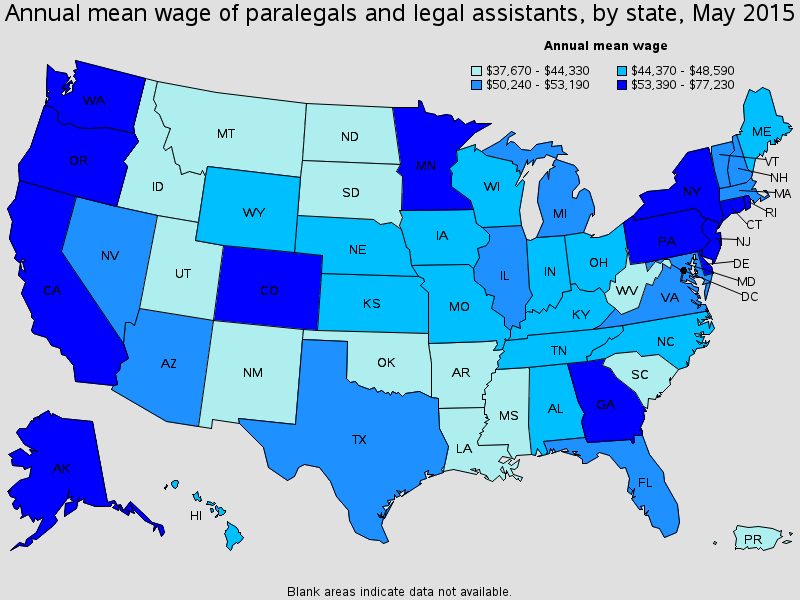25 Essential Reference Books Every Paralegal Should Own
Regardless of which paralegal degree program you choose, you can expect plenty of reading ahead of you. While some books are required reading for many…
2 Secrets for Mastering the Art of Case Briefing
Learning to brief a case is one of the first things that you learn to do when you’re going to school to become a paralegal….
3 Free Legal Research Options for Paralegal Students
A paralegal with good research skills is worth their weight in gold. All too often, attorneys hire paralegals and do not realize that the paralegal…
Is It Ethical to Get Information on Active Cases from Social Media?
We’ve all done it: used social media to find out what we can about someone for personal reasons. Yet, the paralegal profession is subject to…
Job Interview Tips for New Paralegals
Paralegal Strengths and Weaknesses & Other Interview Questions Answered A few years ago, a short-lived reality show emerged, and it centers around one of the…
5 Things Lawyers Need Paralegals to Do
I work with a lot of lawyers. I’ve also provided virtual paralegal services and worked in a traditional law office. Recently, I sat down (virtually!)…
Top 5 Legal Writing Tips for Paralegals
Strong writing skills are essential to your job as a paralegal. The legal industry relies on good communication; and written communication is one of the…
ABA Approval of Paralegal Programs
When I researched Paralegal Studies programs a few years back, there was some talk from Administration of possibly pursuing ABA approval of the program. I…
Paralegal Education 101
How to Choose the Right Paralegal Program to Fit Your Life Becoming a paralegal opens up many doors. While your ultimate goal may be to…
Paralegals and Their Role in the Legal System
Paralegals are an integral part of our legal system, as they provide many valuable services to lawyers, including editing and drafting of legal documentation, preparing…
25 Most Popular Software Applications for Paralegals
As a paralegal, you have many responsibilities. Many people might be surprised at how much you do as a paralegal. Without paralegals, our legal system…
30 Sensational Sites to Help You Land the Paralegal Job of Your Dreams
When you spend the money to earn a degree, you want to know that jobs are waiting for you when you graduate. Paralegal graduates can…
How To Know if a Paralegal Career is Right for You
When it comes to career choices, it’s no secret that sometimes people start down a career path that won’t ever work for them. While it’s…
Paralegals Employment and Salary Trends
Paralegals serve as support staff for lawyers, and they perform a variety of tasks that contribute to the efficiency of a legal department or organization….
Paralegal Degree Programs
Paralegals can work in a law or an attorney’s office, a government agency, corporation, or any other work place with a legal department. A paralegal’s…
Overview of Paralegal Programs and Degree Options
At a minimum, law firms require paralegals to have completed a paralegal certificate program before being hired. An associate’s degree in paralegal studies or legal studies is the next level of education, often designed for working professionals, followed by a master’s program for those who wish to continue their education and advance their careers.
The table below provides an overview of the degree options available in paralegal and legal studies.
Associate Degree – Legal Studies
A two-year degree designed that provides students with the skills and knowledge required to work as a legal assistant in a law office, government agency, or corporation in a shorter amount of time.
Associate Degree – Paralegal
Studies Similar to an associate degree in legal students, this program provides a fundamental awareness of the law and practical hands-on skills in two years or less.
Bachelor’s Degree – Legal Studies
A four-year degree designed for students who wish to advance into a position requiring a higher level of legal knowledge and skills needed to work as a paralegal.
Bachelor’s Degree – Paralegal Studies A four-year degree that trains students to perform the duties required of a paralegal through studies that focus on litigation procedures, computer applications for law offices, ethics, various legal specialties, and general education course requirements.
Master’s Degree – Paralegal Studies
A graduate-level program designed for students who already have experience in the paralegal field and are looking to advance their career or focus their studies on one area of the law field.
Master’s Degree – Legal Studies
Another option for graduate-level study is designed for students who want to stand out among others seeking a similar job or who wish to advance in their current position.
The Value of a Paralegal Degree
It’s a great time to earn a paralegal education. According to The Bureau of Labor Statistics, employment is projected to grow, and earning a degree will help give you the edge you need in today’s market. The map below from The Bureau of Labor Statistics illustrates the top-paying States for this occupation:

Paralegal vs. Lawyer – How to Decide
Some paralegals pursue a law degree, depending on their career goals. A paralegal background will certainly help when it comes to your future career prospects as an attorney if you choose to continue your studies. But is a J.D. what you want? If you’re unsure if becoming a lawyer is right for you, we’ve outlined the biggest distinctions between the careers between attorneys and paralegals to help you decide.
To be an attorney, one must:
- Graduate from an American Bar Association (ABA) accredited law school (in most cases obtaining a juris doctorate).
- Undergo a background screening by the state where he or she intends to practice.
- Pass a licensing test called the bar exam designed to determine if the attorney is minimally competent in that jurisdiction’s major areas of practice.
- Pay annual fees to maintain a license and participate in ongoing legal education requirements.
To be a paralegal, one must:
- Earn a certificate or degree in paralegal or legal studies from an accredited degree program.
- Find employment that provides on-the-job training at a firm, corporation, or organization.
- Get paralegal certification through an accredited association. (Though all employers do not require certification, it provides an advantage over competing candidates.
Earning voluntary certification may help applicants get a paralegal job. Designations include Certified Legal Assistant and Certified Paralegal. Paralegals usually need a year or more of experience and must pass a test to get certified. You can learn more by visiting NALA, The National Association of Legal Assistants-Paralegals.
Both are respectable and challenging careers, and each position has its pros and cons. The decision comes down to personal interests and career trajectory.
Resources to Jump-Start Your Career
Deciding on a career takes time, research, and much thought. With the right resources, you’ll be better equipped to make a smart decision. The links below provide career-related information for prospective paralegal students or even current students interested in advancing their education:
Step #1: Learn about the profession
Step #2: Determine what degree program to pursue
- How to Choose a Paralegal Program: A Ten-Point Guide
- The Value of a Paralegal Degree: Experts Weigh In
Step #3: Research areas of specialization
- Various Types Of Paralegal Jobs
- Common Specialization Areas In The Paralegal Profession


